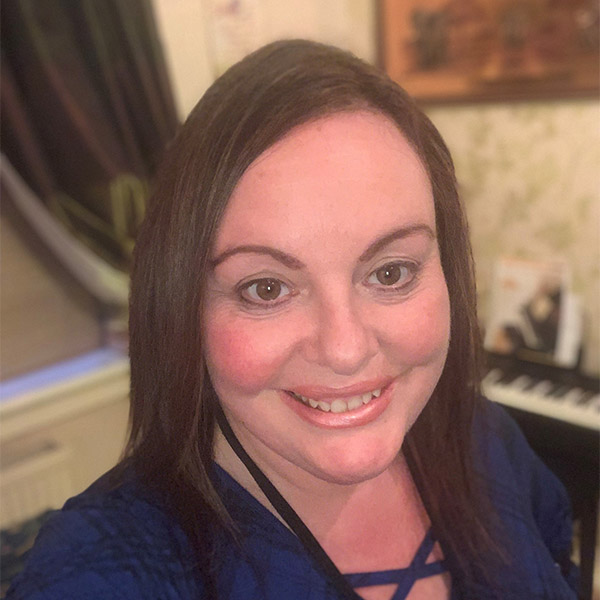Working as a technology enabled care coordinator for the council, Debbie wanted to find a course that would give her the knowledge and skills needed to fulfil this role to its full potential. Here she tells us what it's been like to study the MSc Digital Health Care Systems.
Why MSc Digital Health Care Systems
I arrived in the field of technology enabled care late in life, at the age of 42. Technology moves at speed in the modern world, and I felt I was already at a disadvantage due to my age.
In my role as Technology Enabled Care Coordinator for Argyll and Bute Council HSCP, I found myself faced with the daunting task of project managing the analogue to digital transformation within the HSCP telecare service. I knew I was not skilled enough to carry out this task to its full potential, so I decided to upskill and find a course that would quickly and effectively give me the knowledge and skills I needed to excel in the world of technology enabled care, an area I had quickly become extremely passionate about.
With the help of the Scottish Government leads, I came across the Masters in Digital Health Care Systems and applied. I was also fortunate enough to find full funding from the National Digital Care Institute, and there my journey started.
Getting out of my comfort zone
It was terrifying to go into a university and enter an unfamiliar process of learning at a high-end level, and to be completely honest, I just felt too old.
I was completely out of my comfort zone, and with the more technical elements, constantly doubted my ability. I did not expect to pass the assignments, as I did not realise I had the potential that this course miraculously managed to pull out of me. I did, however, bring to the table Project Management experience, which was a valuable asset in achieving the best outcomes.
The teaching and direction were just fantastic. The support of the tutors was, without question, to a very high standard. Marilynn Lennon and Lisa McCann were an exceptional support.
There were modules with large classes that I found really challenging as I felt that I did not get to know the tutors and found the work very confusing. However, with the support from other students I managed to find a learning path and get value from the subject matter.
Balancing work & study
During this time, I was also working full time in a demanding role. In the first year I had to condense my working hours into four long days and on the fifth day a 4.30am start to get into Glasgow for a long day of learning. This all took its toll, but I was enjoying the course so much I kept working through the many challenges. Then COVID hit.
Working in a health and social care role and managing an operational service, my working hours became longer and more demanding, trying to reach our vulnerable clients and keep my staff safe with appropriate guidance and PPE. However, what I did find was that during this very difficult time, the learning from the first year was already kicking in. I was already a better professional.
The knowledge gained really helped me to meet operational and challenging demands, using the technical skills and knowledge from my first year of learning.
Just as I was about to start my dissertation, I applied for a promotional post within Glasgow. The timing wasn’t great, but it was a position working for a manager I greatly respected and wanted the opportunity to work with. I was successful and now had to finish exams, write a dissertation, and learn a completely new job as Digital Transformation Officer for Glasgow City HSCP. Again, the skills learnt had been so valuable, I had secured a promotion before I had even qualified.
Graduating with distinction
I sit here typing this testimonial with a Masters in Digital Health Care Systems – with DISTINCTION! And a shiny new role in the digital health field.
I have proven skills in:
- Designing Digital Solutions
- Implementation of Technology Enabled Care into private and public centre business.
- Data Analytics
- Advanced project Management
- Governance and Law
- Healthy Ageing
- Database
And so much more from the lectures that we had the opportunity to attend, for example, telehealth solutions and artificial intelligence.
I feel skilled in my topic and confident that I have the ability to carry out new and challenging digital health projects. Not just backed by project management experience, but by actual knowledge and understanding of the technical work streams and operational demands.
I am a technology enabled care professional with a Masters to prove it. If I can do it, anyone can. Thank you, University of Strathclyde.
